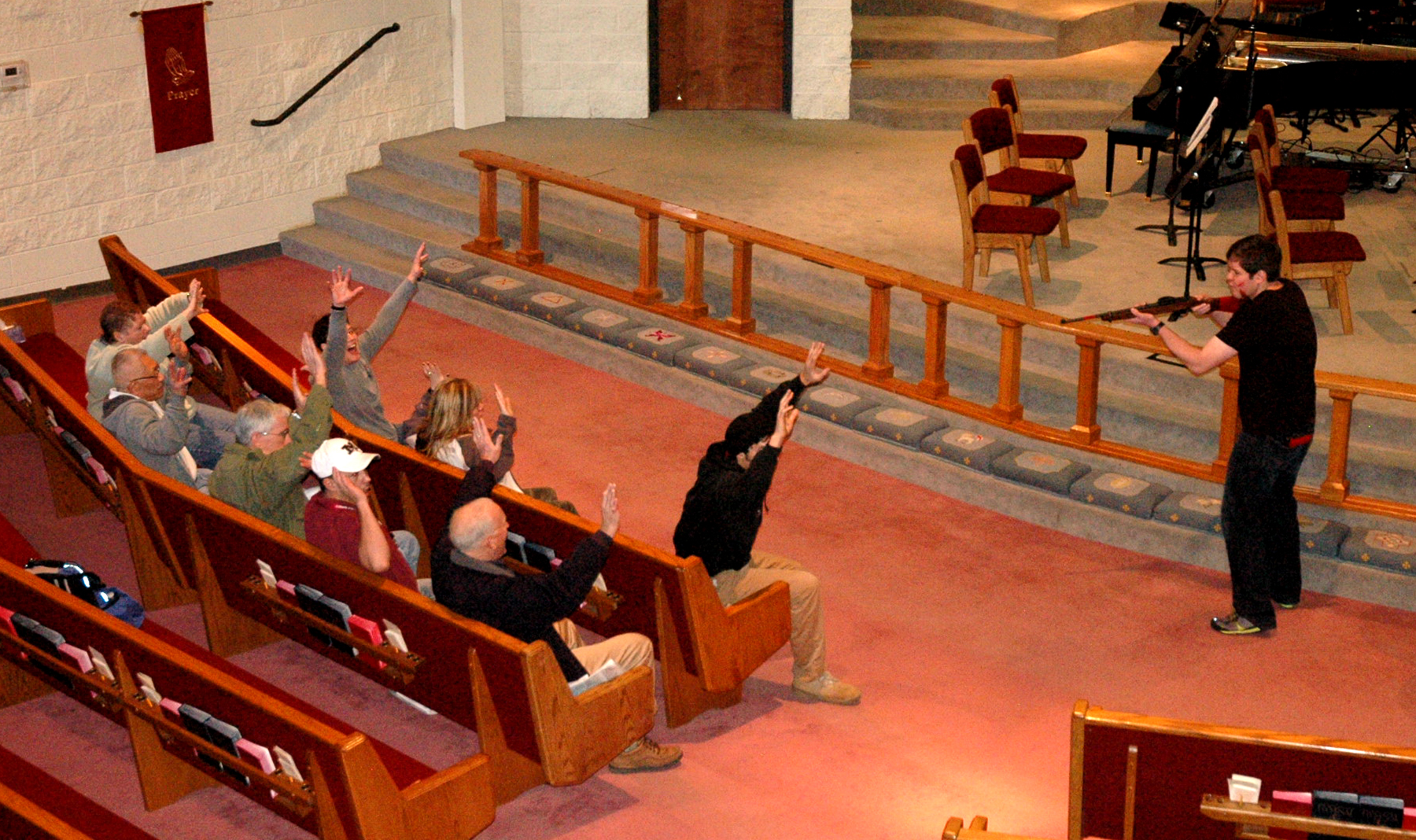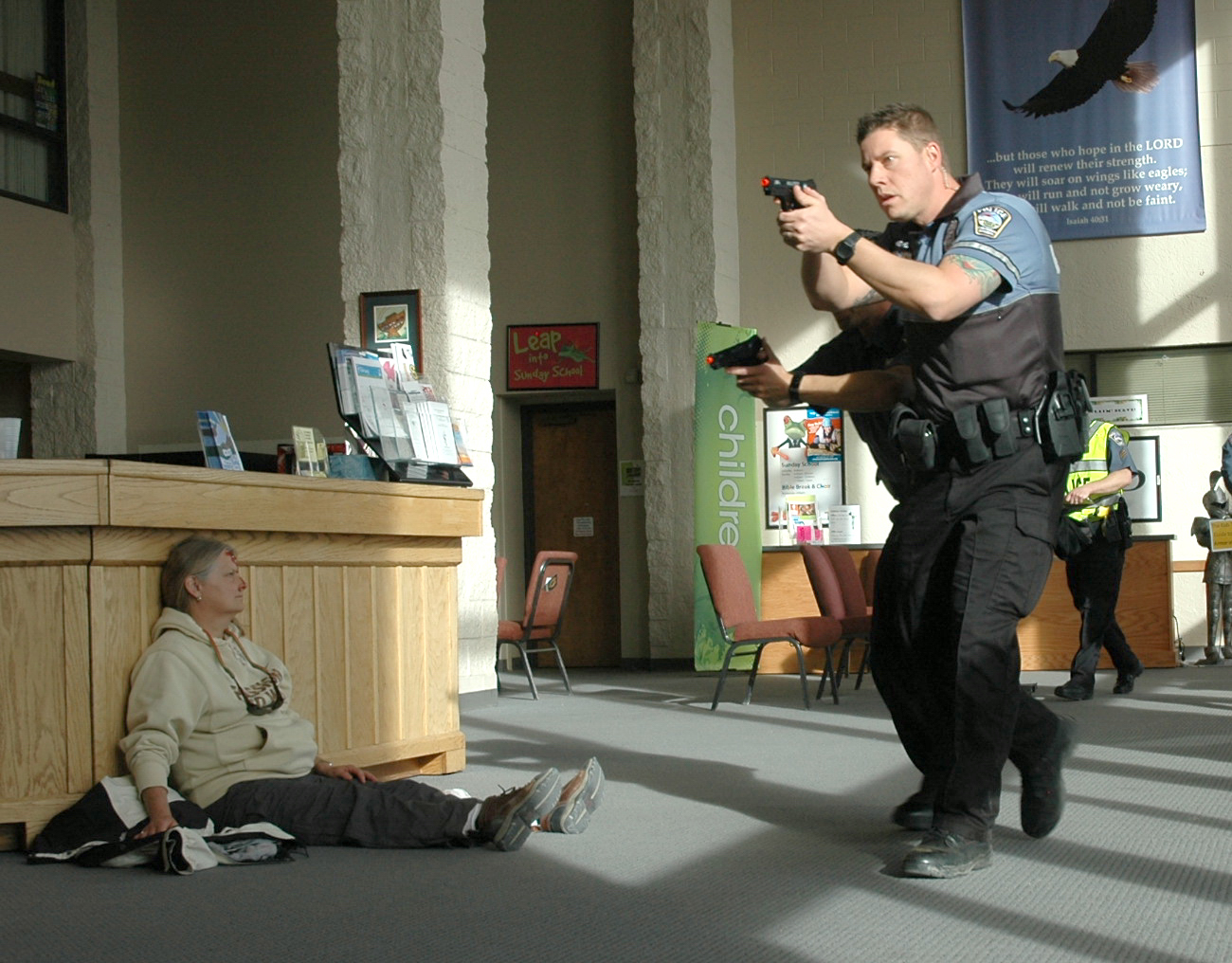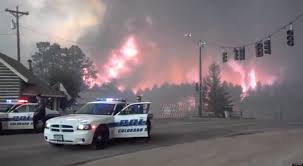Official Volunteer Program: Colorado Springs Police and Fire Departments & Office of Emergency Management
 The Colorado Springs Police Department (CSPD) is a progressive municipal law enforcement agency with an authorized force of 659 sworn and 357 civilian employees.
The Colorado Springs Police Department (CSPD) is a progressive municipal law enforcement agency with an authorized force of 659 sworn and 357 civilian employees.
Volunteers have been an integral part of daily operations throughout the CSPD for over forty years. Based on community need, a diverse group of stakeholders researched and developed the current program, introduced to the public in 2011 as Community Advancing Public Safety (CAPS). Since its launch, CAPS has experienced tremendous growth and success. The number of volunteers has increased 80 percent since the CAPS launch, from 350 volunteers before 2011 to 630 volunteers today. An all-volunteer Leadership Committee provides oversight and community resources to the program. CAPS has implemented significant programs that maximize the skills of volunteers and enhance CSPD services. In 2013, volunteers across 80 assignments within the program provided over 71,000 volunteer hours at a value of $1,600,000.
CAPS volunteers made a significant impact on public safety services in Colorado Springs in innovative ways, including the following:
- Filling key roles in the Emergency Operations Center during the 2013 Black Forest Fire and flood disasters
- Freeing over 1,800 hours of violent crimes detectives’ time by providing key investigative support
- Supporting realistic active shooter training for 120 officers
- Processing 1,700 criminal tips contributing to 47 arrests
- Providing crisis intervention and supportive services to 4,600 crime victims and an additional 1,200 contacts supporting elders
- Providing customer service as ambassadors in key business districts
- Ensuring meaningful access to public safety services for Spanish-speaking residents in 119 calls for service
- Reviewing 460 incidents on public safety surveillance cameras, resulting in 56 arrests
Among the many diverse opportunities that strengthen CSPD’s services are four innovative positions:
Public safety camera system: In 2013, ten volunteers served nearly 1,000 hours viewing surveillance cameras in the downtown Colorado Springs area as a critical part of a larger public safety initiative. In this role, the volunteers are in direct communication with officers and communications center personnel, reporting real-time suspicious behavior and recording video for future needs. Volunteers assisted in over 460 incidents ranging from assaults to narcotics violations, resulting in 56 arrests. In one case, a volunteer camera operator observed a man wielding an illegal knife and was able to direct officers to the location.
 Investigations: Volunteers served nearly 1,000 hours in 2013 in the Special Victims, Crimes Against Elders, Domestic Violence, Sexual Assault, and Cold Case units, assisting detectives with case reports, victim phone contact, and other critical research. This area is also a magnet for students in the department’s robust volunteer intern program; eight interns have successfully worked in this area. One sergeant states, “Interns within the Domestic Violence and Adult Sexual Assault units are a tremendous asset, and the work they do helps free a detective’s time to pursue more leads.” Specially trained cold case homicide and missing persons volunteers served 841 hours organizing and digitizing voluminous case files, paginating the cases, and making the cases searchable. This work makes reviewing cases easier and follow-up on potential leads more efficient and effective. It also greatly improves detectives’ ability to access critical information quickly during their court testimony. Volunteers also conduct records searches and perform other duties to support detectives in this unit.
Investigations: Volunteers served nearly 1,000 hours in 2013 in the Special Victims, Crimes Against Elders, Domestic Violence, Sexual Assault, and Cold Case units, assisting detectives with case reports, victim phone contact, and other critical research. This area is also a magnet for students in the department’s robust volunteer intern program; eight interns have successfully worked in this area. One sergeant states, “Interns within the Domestic Violence and Adult Sexual Assault units are a tremendous asset, and the work they do helps free a detective’s time to pursue more leads.” Specially trained cold case homicide and missing persons volunteers served 841 hours organizing and digitizing voluminous case files, paginating the cases, and making the cases searchable. This work makes reviewing cases easier and follow-up on potential leads more efficient and effective. It also greatly improves detectives’ ability to access critical information quickly during their court testimony. Volunteers also conduct records searches and perform other duties to support detectives in this unit.
Training Scenarios: Over 50 volunteers served nearly 400 hours in role play “acting” scenarios to support training officers. These volunteers supported the training of 120 officers in realistic active shooter scenarios. In one active shooter training, volunteers as “victims” arrived at 3:45 a.m. and stayed over 6 hours. Additionally, over 200 volunteer hours supported three CSPD Training Academy scenarios: a bar fight, a traffic accident with an impaired driver, and a burglary in progress. The impact to the department is a savings of hundreds of officer hours in “extras” roles, and as one officer stated, “CAPS volunteers have helped us at a whole new level.”
Strategic Information Center (StIC): Volunteers in the Tip Processing Unit are a subgroup of StIC, processing a variety of incoming crime tips. Tip technicians review, assign, and distribute the tips for follow-up and served over 2,300 hours in 2013. Tip technicians are also responsible for tracking Crime Stoppers tips for rewards processing and reporting purposes. The work of these volunteers in processing over 1,700 tips in 2013 contributed to 47 arrests.
An important achievement of the program is expansion into large-scale emergency operations. Community volunteers have not historically been used within the city’s incident command structure. Colorado Springs has been struck with significant natural disasters over the past 18 months, which have tested the ability of police, fire, and other public safety resources to respond.
After the 2012 Waldo Canyon Fire, the city’s after action report included nine recommendations to incorporate CAPS volunteers in emergency response. As a result, the CAPS volunteer program has now officially been integrated into the City of Colorado Springs Emergency Operations Center (EOC) and is at the forefront of the formation of additional regional resource networks. Volunteers are trained and mobilize upon EOC activation, often reporting within the hour in spite of their own personal crises. The highly trained volunteers served almost 600 hours during the 2013 Black Forest Fire and several floods, performing crucial duties that freed officers to focus on the emergent conditions at hand.
 Key opportunities for volunteers in the EOC include serving as call-takers and runners for the Operations Section officers, scribes documenting real-time activity into a web-based tracking program, and volunteers ensuring proper sign-in/sign-out procedures were followed within the EOC. A CSPD lieutenant described the success of integrating these volunteers this way: “As an operations chief in the EOC, I have found having trained, professional, and motivated volunteers critical in providing continuity of communication in that stressful environment. Their role provides immediate access to recorded information during operations involving natural disasters and states of emergency which would otherwise be lost to unfolding events.” This role for CAPS volunteers is a unique collaboration among public safety services that added significant value to the city’s capacity to respond to these disasters.
Key opportunities for volunteers in the EOC include serving as call-takers and runners for the Operations Section officers, scribes documenting real-time activity into a web-based tracking program, and volunteers ensuring proper sign-in/sign-out procedures were followed within the EOC. A CSPD lieutenant described the success of integrating these volunteers this way: “As an operations chief in the EOC, I have found having trained, professional, and motivated volunteers critical in providing continuity of communication in that stressful environment. Their role provides immediate access to recorded information during operations involving natural disasters and states of emergency which would otherwise be lost to unfolding events.” This role for CAPS volunteers is a unique collaboration among public safety services that added significant value to the city’s capacity to respond to these disasters.
CAPS is promoted throughout CSPD—from the highest levels of city and PD leadership to the 63 staff team leaders who supervise volunteers, the CAPS staff, and the employees who work alongside volunteers every day. CAPS is so important to CSPD operations that strategies involving the program are incorporated into eight of ten department strategic goals for the next three years. CAPS has been fully accepted as the way CSPD does business, realizing its vision of “transforming delivery of public safety services through volunteerism.”
Jean Kraus, CAPS Administrator
Colorado Springs Police Department
Amanda Terrell-Orr, Planning and Grants Administrator
Colorado Springs Police Department
Body-Worn Camera Program | GPS and Credit Card Skimming | Colorado Springs Volunteer Program | COPS Office Social Media | Violent Extremism in the Digital Age | Promising Practices in DEC
